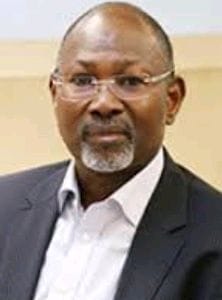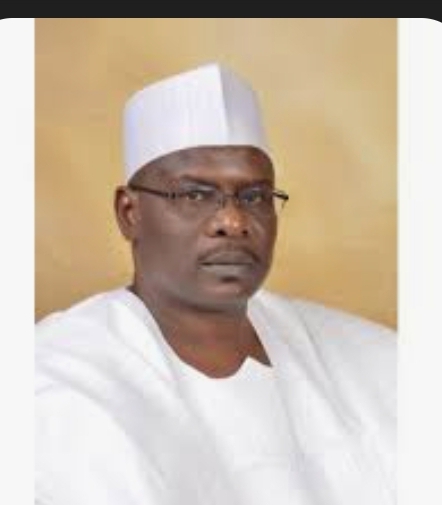…As NILDS Advocates Greater Investment in Education, Commends Legislative Support for National Development
…Akpabio, Abbas, Sulaiman Harp on Capacity Building, Democratic Governance at 9th NILDS-UNIBEN Convocation
Former Chairman of the Independent National Electoral Commission (INEC), Professor Attahiru Jega, has warned that Nigeria’s democracy will remain fragile and unstable unless urgent steps are taken to restore integrity to the nation’s electoral process.
He gave the warning Delivering a keynote address titled “Electoral Integrity as a Panacea for Democratic Development in Nigeria” at the Convocation Ceremony of the National Institute for Legislative and Democratic Studies (NILDS) on Monday in Abuja, Jega said no democracy can survive when citizens lose confidence in elections and when politicians continuously undermine institutions meant to ensure credible polls.
Quoting former UN Secretary-General, Kofi Annan, who said “Power, and the competition for power, must be regulated,” Jega insisted that democracy in Nigeria can only thrive when politicians respect the independence of election officials, judges, and the judiciary.
“It is not enough for governments to create institutions; politicians must respect and safeguard the independence and professionalism of election officials, judges, and courts,” he stated.
According to him, more than two decades after the return to civil rule in 1999, Nigeria’s democratic journey has been “challenging, if not disappointing,” largely because elections have failed to inspire citizens’ confidence or produce truly representative leadership.
He said: “For 25 years, Nigeria has been muddling through democratic development with aspirations for consolidation, but these have been remarkably constrained by enormous challenges—chief among them, the question of electoral integrity.”
Jega, who led INEC between 2010 and 2015, lamented that despite periodic elections, Nigeria continues to grapple with poor governance, rising poverty, corruption, and social tensions because electoral outcomes often fail to reflect the genuine will of the people.
“Elections that lack integrity undermine democracy, weaken public trust, and lead to governance failure,” he warned. “Only elected officials who truly reflect the genuine choices of the electorate can drive good governance that protects citizens’ rights and aspirations.”
The former INEC boss noted that while the country has made some progress in conducting periodic elections, malpractices, fraud, and manipulations still characterize every stage of the electoral process—from voter registration to result collation.
He argued that electoral integrity must encompass all aspects of the electoral cycle, including legal frameworks, institutional design, and post-election dispute resolution.
“Electoral integrity means the absence of malpractices and fraudulent activities in the preparation, management, and conduct of all aspects of the electoral process,” he said. “It ensures fairness, equity, and justice, such that outcomes are legitimate and acceptable.”
Jega explained that while no election anywhere in the world is perfect, what distinguishes advanced democracies from weaker ones is the degree of compliance with ethical standards, fairness, impartiality, and transparency.
“The fewer the incidences of malpractice, the greater the integrity of an election; conversely, the more the manipulation, the less credible the process,” he said.
He added that for Nigeria to achieve sustainable democratic development, political elites must stop seeing elections as warfare and start treating them as contests of ideas.
“Elections are not merely about capturing power; they are about offering citizens a genuine choice. Leaders who emerge through credible processes are more likely to be responsive and accountable,” he noted.
Jega emphasized that achieving credible elections requires continuous reforms, strong institutions, and a justice system that ensures fairness and accountability. He cautioned that when political actors manipulate these institutions, they erode legitimacy and provoke instability.
“Independent electoral management bodies must be protected from political interference. Similarly, the judiciary must be insulated from pressure to manipulate electoral justice,” he said. “Without independence, impartiality, and professionalism of these key institutions, democracy is hollow.”
He urged the National Assembly and civil society to prioritize electoral reforms that will improve transparency in voter registration, campaign financing, and result management.
According to him, “Legal frameworks need to guarantee fair competition, effective remedies for grievances, and citizens’ confidence that their political rights can be exercised without fear.”
‘Good Governance Depends on Electoral Integrity’
Jega stressed that democratic development is impossible without credible elections that produce legitimate governments committed to good governance. He defined Good Democratic Governance as governance that is inclusive, participatory, transparent, and accountable—anchored on citizens’ trust.
“Only elections imbued with integrity can confer legitimacy, stability, and responsible governance,” he said, citing global studies that show a direct correlation between electoral integrity and democratic consolidation.
He argued that for Nigeria’s democracy to mature, citizens must be empowered through civic education and sustained engagement in the political process. “Community sensitization, voter education, conflict resolution, and peacebuilding are key areas for strengthening electoral integrity,” he added.
The former INEC chairman reminded political leaders that democracy is not just about periodic elections, but about ensuring that governance addresses citizens’ needs, protects rights, and promotes human dignity.
“The main purpose of governance in a democracy is the protection and promotion of citizenship rights and human security,” he declared. “Anything less is a betrayal of the people’s mandate.”
Calling for renewed commitment from all stakeholders, Jega concluded: “Improving the integrity of elections is the key to democratic development. Regular elections are not enough; only elections conducted with integrity can deliver the dividends of democracy Nigerians yearn for.”
Meanwhile the National Institute for Legislative and Democratic Studies (NILDS), the research and capacity-building arm of the National Assembly, at its 9th Convocation Ceremony in Abuja on Monday, reaffirmed its commitment to strengthening democracy through education, research, and institutional development.
The ceremony, held at the Institute’s permanent site in Piwoyi District, was attended by top government officials, legislators, and academics, including the President of the Senate and Chairman of the NILDS Governing Council, Senator Godswill Akpabio; the Speaker of the House of Representatives, Rt. Hon. Abbas Tajudeen; and the Director General of NILDS, Prof. Abubakar O. Sulaiman.
In their separate remarks, the leaders underscored the role of education, particularly legislative and democratic studies, in fostering accountable governance, improving public service delivery, and sustaining democratic development in Nigeria.
Akpabio, who chaired the event, emphasized the importance of strengthening the nation’s legal frameworks and oversight mechanisms to ensure effective governance and equitable distribution of public resources. He said the 10th National Assembly would continue to deploy its legislative and oversight instruments to enhance transparency, revenue generation, and service delivery.
“As members of the 10th Senate, we will continue to strengthen existing legal frameworks and enhance our oversight of public institutions to ensure they deliver effective public service,” Akpabio said. “Our efforts have already contributed to increased revenue accruing to the Consolidated Revenue Fund, leading to higher allocations to states and the federal government.”
The Senate President, however, urged state legislatures to complement the efforts of the National Assembly by holding governors accountable for the prudent and equitable use of the additional funds now available to subnational governments.
He charged the graduating students to apply the knowledge acquired at NILDS to improve their workplaces and contribute meaningfully to the nation’s progress. “It is when we all do our best that the country improves for the good of all,” Akpabio added.
On his part, the Speaker of the House of Representatives, Rt. Hon. Abbas Tajudeen, lauded the partnership between NILDS and the University of Benin (UNIBEN) for their sustained collaboration in promoting academic excellence in legislative studies. He noted that the NILDS-UNIBEN programmes have produced highly skilled professionals who are better equipped to confront Nigeria’s governance and institutional challenges.
Abbas commended the reforms of President Bola Ahmed Tinubu’s administration, noting that key economic indicators were beginning to improve. “Though we may have different experiences, what is clear is that our economy is on a better growth trajectory today than it would have been under a business-as-usual scenario,” the Speaker said.
He disclosed that inflation had dropped below 20 percent, while the value of the naira was appreciating against major currencies, attributing these developments to the government’s fiscal and tax reforms. “The 10th House of Representatives is committed to reforming the budget process to ensure strict adherence to timelines for preparation, enactment, implementation, and oversight,” Abbas stated.
Earlier, in his welcome address, the Director-General of NILDS, Prof. Abubakar O. Sulaiman, said the Institute’s academic programmes were designed to bridge knowledge and capacity gaps in democratic institutions across the country. He emphasized that the NILDS-UNIBEN partnership continues to produce graduates with the skills necessary to strengthen governance, policy-making, and legislative practices.
“Established by an Act of the National Assembly, NILDS remains the only statutory body mandated to serve as a think tank for deepening democratic governance in Nigeria,” Sulaiman said. “Our programmes contribute to addressing the knowledge gap and capacity needs of public institutions and civil society.”
He disclosed that a total of 79 students graduated from various programmes, including 19 from the Higher National Diploma courses, nine from Postgraduate Diploma programmes, and 51 from Master’s degree programmes in Legislative and Democratic Studies.
Prof. Sulaiman used the occasion to call on the federal and state governments to prioritize funding for the education sector in the 2026 fiscal year, warning that inadequate funding would continue to undermine the quality of human capital development.
“The funding of higher institutions has a direct relationship with human capacity development. Low funding translates to poor-quality graduates,” he cautioned. “I also urge the government to find a lasting solution to the incessant ASUU strikes that have bedeviled and distorted our university system.”
He commended the University of Benin, led by Vice Chancellor Prof. Edoba Bright Omoregie, SAN, and the National Board for Technical Education (NBTE) for their partnership and accreditation support, which have helped NILDS sustain high academic standards.
Sulaiman also announced that admissions for the 2025/2026 academic session had commenced, with several applications already received for programmes such as Master’s degrees in Elections and Party Politics, Legislative Studies, Parliamentary Administration, and Constitutional Law and Development.
The event also served as an opportunity for stakeholders to reflect on the role of legislative institutions in consolidating Nigeria’s democracy. Speakers agreed that education and capacity building were key to improving governance outcomes and strengthening public confidence in democratic institutions.
With glowing tributes from both the legislature and academia, NILDS reaffirmed its position as Nigeria’s foremost institution for legislative and democratic research, training, and policy innovation—one that continues to shape the future of governance through knowledge and service.





